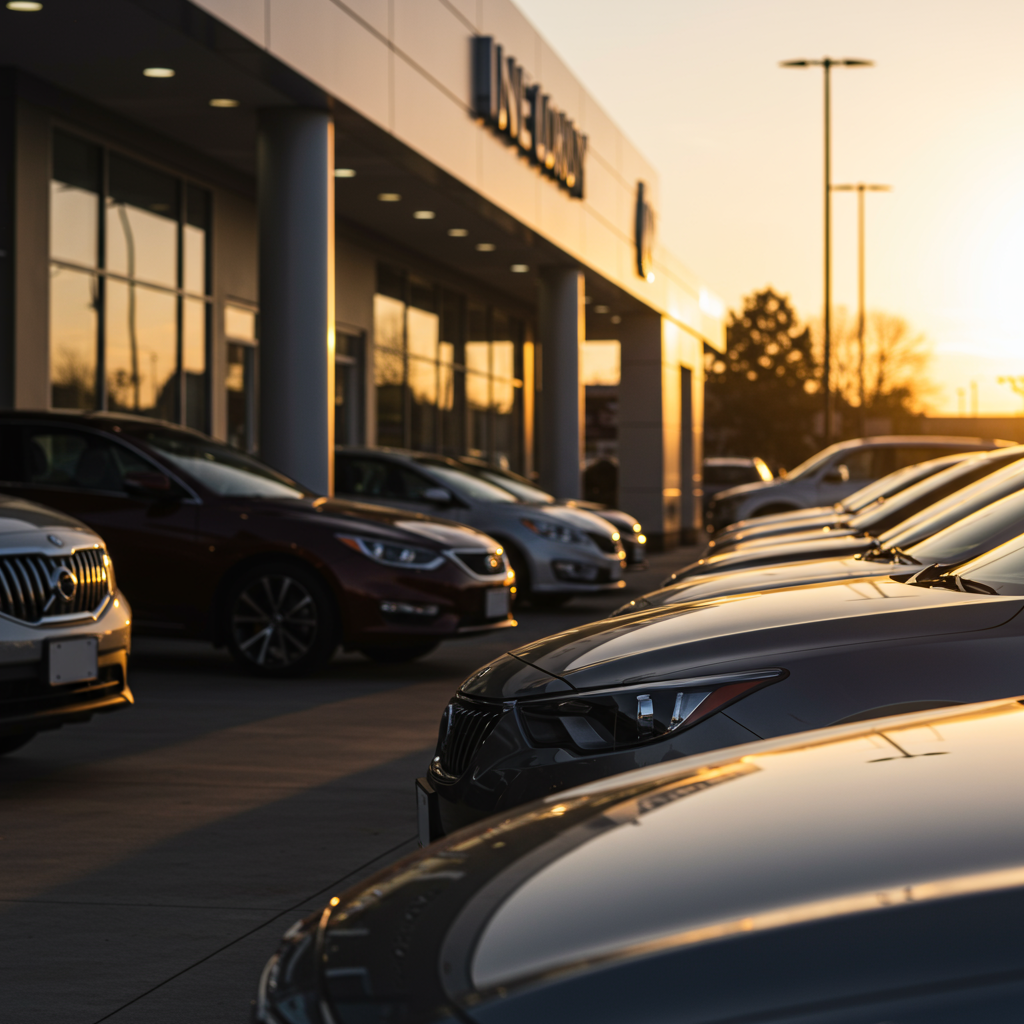
Table of Contents
Introduction
Running a car dealership comes with a unique set of challenges and risks that can impact your business’s financial stability and reputation. What if one day your inventory is damaged, a customer is injured on your premises, or an employee suffers an accident? How prepared would you be to handle unforeseen events that could disrupt your operations or lead to costly legal claims? This is where insurance for car dealers plays a vital role, acting as a safety net to protect your business from diverse vulnerabilities.
Car dealerships are dynamic environments involving interactions with customers, employees, vehicles, and property. The array of risks includes theft, property damage, liability claims, and employee-related incidents. According to industry data, businesses without appropriate insurance coverage face higher chances of financial distress or even closure when unexpected incidents strike. For car dealers, having tailored insurance means safeguarding assets, maintaining customer trust, and ensuring compliance with legal requirements. It’s not just a purchase — it’s a strategic investment in the longevity and credibility of your dealership.
Many car dealers initially focus on sales and customer service, sometimes underestimating the importance of comprehensive insurance coverage. However, a business interruption, legal dispute, or major liability can quickly undermine your efforts and profitability. Car dealer insurance comprises several specialized policies addressing specific needs such as garage liability, inventory protection, and workers’ compensation. Understanding the scope and benefits of these coverages empowers you to make informed decisions aligned with your unique business model and risk profile.
In today’s competitive automotive market, being proactive about risk management is crucial. Alongside everyday operational decisions, your insurance choices shape your resilience against setbacks. Whether you operate a small local dealership or a large multi-location business, well-structured insurance solutions provide peace of mind. For those new to the concept, learning about insurance basics upfront can be invaluable. Before diving into specifics, it’s important to understand insurance basics and how they underpin smart risk management.
What makes car dealers uniquely vulnerable is the variety of exposures they face—from the vehicles on the lot to customer interactions and employee safety. The investment in inventory alone can reach millions, necessitating robust coverage against damage or theft. Additionally, legal claims arising from accidents on your premises or faulty products can lead to costly lawsuits impacting your bottom line. Addressing these risks comprehensively requires a deep dive into the types of insurance tailored for your industry. Learning about types of insurance provides clarity on options available to protect your business assets and liabilities effectively.
What You’ll Learn in This Guide
This comprehensive guide will walk you through everything you need to know about insurance for car dealers. Here’s what we’ll cover to help you protect and grow your business wisely:
- Understanding Car Dealer Insurance: Learn about the specific insurance policies designed for car dealerships, including their scope, benefits, and how they safeguard your diverse risks effectively.
- Identifying Risks and Needs: Discover the common risks faced by car dealers, from vehicle theft and property damage to liability and employee injuries, and understand why insurance is a critical necessity.
- Choosing the Right Coverage: Gain practical guidance on assessing your business size, location, vehicle types, and employee factors to select insurance policies that align with your unique requirements.
- Handling Claims and Working with Insurers: Explore typical insurance claims scenarios, how to manage them efficiently, and tips for working smoothly with your insurance providers to ensure timely support.
As we proceed, you’ll see how each component of insurance fits together to form a protective shield around your dealership. Understanding these concepts will empower you to make strategic decisions to minimize risks and maximize your business continuity.
We will delve into coverage types like general liability, garage liability, inventory insurance, workers’ compensation, and property insurance, explaining their roles and importance in detail. You’ll learn how risks such as theft, legal claims, and employee injuries can impact your business finances and operations if left uninsured.
Next, the guide outlines practical steps to help you evaluate your dealership’s specific needs based on location, size, customer base, and types of vehicles sold. This clarity will assist in selecting the optimal insurance mix, balancing protection and cost-effectiveness. Additionally, you’ll discover best practices for engaging insurance providers, including comparing quotes, understanding policy terms, and managing claims efficiently.
By the end, you will be equipped not only with knowledge but also actionable insights to safeguard your car dealership comprehensively. Your journey to confident, informed insurance decisions starts here—let’s explore how to shield your business and thrive even amidst challenges.

Continuing from the introduction, it is important for car dealers to thoroughly understand the complexities and nuances of insurance coverage tailored specifically for their businesses. Given the variety of risks and exposures unique to the automotive retail industry, having the right insurance policies in place is essential to safeguarding operations and ensuring long-term stability. In this detailed discussion, we will explore the critical aspects of insurance coverage for car dealerships, including why it is essential and how to select the right policies. Whether you are a new dealer or an established business owner, grasping these concepts can help you make informed decisions that protect your assets, employees, and customers effectively.
The Importance of Insurance for Car Dealerships
Car dealerships operate in a high-risk environment due to the nature of their inventory, the movement of vehicles, and interactions with customers and employees. The automotive sales industry faces potential threats such as vehicle theft, property damage, workplace injuries, and liability claims stemming from accidents or mishaps on the dealership lot. Insurance serves as a financial safety net that can mitigate the impact of these risks, sustaining business operations during unforeseen events. It not only protects the valuable inventory but also shields the business from costly legal claims and operational interruptions. To fully grasp this concept, it helps to understand small business insurance requirements, as car dealerships typically fall under this category and benefit from comprehensive coverage strategies.
Moreover, having insurance in place enhances the reputation of the dealership by demonstrating a commitment to safety and responsibility. Customers and partners alike seek businesses that are prepared to manage risks proactively. The varied types of insurance tailored to dealerships cover broad contingencies, from garage liability that covers operational hazards to workers’ compensation protecting employees. This multi-faceted protection ensures that dealers can focus on their core business activities without the overwhelming worry over potential financial losses. Learning about insurance for specialized businesses can further highlight how tailored policies address industry-specific challenges.
Key Aspects of Insurance for Car Dealerships
Below are the critical types of coverage that every car dealership should consider to protect its operations comprehensively:
- General Liability Insurance: This covers claims related to bodily injury, property damage, and legal defense costs if a customer or third party is injured on your premises. It is foundational protection against lawsuits resulting from everyday business activities.
- Garage Liability Insurance: Specifically designed for dealerships, this covers liability arising from the operation of garage services including test drives, vehicle repairs, and maintenance. It addresses unique dealership exposures not covered by general liability.
- Inventory Insurance: This protects the dealership’s vehicle inventory against risks such as theft, fire, vandalism, and weather damage. Given that vehicle stock is often the largest asset, this coverage is crucial for financial security.
- Workers’ Compensation: Compulsory in most states, this covers medical expenses and lost wages for employees injured on the job. It promotes workplace safety and complies with legal mandates.
- Property Insurance: Protects physical assets such as the dealership building, equipment, signage, and other business property from risks like fire, storms, and theft.
Selecting the Right Insurance for Your Car Dealership
Choosing appropriate insurance entails a thorough assessment of your dealership’s unique needs, operational scale, and risk profile. Consider factors such as the size and location of your dealership, which influence the level of exposure to risks like natural disasters or crime rates. The types of vehicles sold also matter, as dealing with luxury or used cars may require additional endorsements or coverage options. For a deeper understanding of how to approach this evaluation, reviewing insurance basics is recommended to get a broad perspective on policy types and their functions.
Engaging with multiple insurance providers and comparing quotes can help identify cost-effective policies without compromising essential coverage. It’s vital to scrutinize policy details, including deductibles, exclusions, and coverage limits, to avoid surprises during claims. Customer service quality, claim processing efficiency, and insurer reputation also play a role in selecting a reliable partner. Many experts recommend also considering the insurance claims process as part of a comprehensive approach to ensure smooth handling when incidents occur.
Important Considerations for Choosing Insurance
When deciding on insurance coverage for your dealership, keep these factors in mind:
- Size and Location of Dealership: Larger dealerships with multiple locations may require higher coverage limits and separate policies to address diverse risk exposures. Urban or high-crime areas often justify increased security and insurance layers.
- Types of Vehicles Sold: Selling new, used, or specialty vehicles affects risk profiles differently. Certain coverage types might need customization to address specific inventory risks like depreciation or liability for leased cars.
- Number of Employees: More employees increase exposure to workplace injuries, making workers’ compensation coverage vital. Additionally, policies may need adjustment based on staff roles and safety training.
- Risk Factors Unique to the Business: Consider operational activities such as vehicle repair services, test drives, and customer interactions. These influence the need for garage liability and additional liability endorsements.

Conclusion
Insurance for car dealers is an indispensable aspect of running a successful and resilient dealership. This guide has highlighted the critical importance of securing comprehensive insurance coverage tailored specifically to the car dealership industry’s unique risks. These risks range from theft and property damage to liability claims and employee injuries, each capable of severely impacting your financial stability and operational continuity. Understanding the variety of policies available—such as general liability, garage liability, inventory insurance, workers’ compensation, and property insurance—is fundamental to crafting a protective shield around your business assets and reputation.
Choosing the right insurance requires a thorough assessment of your dealership’s size, location, employee count, and the types of vehicles you sell. Additionally, careful comparison of insurance providers and policies ensures that you obtain robust coverage that meets your business needs without unnecessary expenditure. The insurance purchasing journey also involves understanding the claims process and knowing when to engage your insurance agent promptly to resolve issues effectively. These proactive measures can greatly reduce business interruptions and support faster recovery from unforeseen incidents.
Car dealerships operate in a fast-paced, liability-heavy environment where the cost of uninsured losses or legal claims can be devastating. Tailored insurance coverage not only helps mitigate financial risks but also fosters trust among customers and partners by demonstrating your commitment to responsible business management. This commitment ultimately enhances the dealership’s longevity and competitive edge in the automotive marketplace.
To deepen your understanding of insurance fundamentals, you might want to explore insurance basics. For a broader perspective on various insurance policy types and their applications, consider our detailed guide on types of insurance. Navigating claims smoothly is essential for maintaining financial health, so reviewing the insurance claims process will equip you with valuable insights. Since many car dealerships qualify as small businesses, understanding small business insurance requirements can further clarify your insurance obligations and options.
Taking these actionable steps ensures you make well-informed decisions aligning coverage with your operational realities. Begin by conducting a risk assessment of your dealership to identify potential vulnerabilities. Next, engage with multiple insurance providers to compare quotes and clarify policy terms. Maintain open communication with your insurance agent, especially when incidents occur, to streamline claim settlements and protect your business interests effectively. Remember, the right insurance strategy is a powerful tool that not only safeguards your assets but also empowers your dealership to thrive confidently despite the uncertainties of the market and environment.
In closing, every car dealer should prioritize insurance as a strategic investment critical to business success and sustainability. By leveraging comprehensive coverage options and staying informed through reliable resources, you can protect your dealership’s future and bolster your peace of mind. Embrace the knowledge shared here to build a resilient insurance foundation that supports your dealership’s continued growth and customer trust.
Frequently Asked Questions
-
What types of insurance do car dealers need?
Car dealers typically need liability, garage, inventory, workers’ compensation, and property insurance to cover diverse operational risks effectively.
-
How can I lower my insurance premiums?
Implementing safety measures, bundling policies, and raising deductibles where appropriate can help reduce insurance costs without compromising essential coverage.
-
What should I do after an insurance claim?
Promptly report the claim, document all details thoroughly, and maintain close communication with your insurance provider to ensure smooth processing.
-
Is insurance for car dealers mandatory?
Requirements vary by location, but many types of insurance are legally mandated to protect businesses, employees, and customers adequately.


